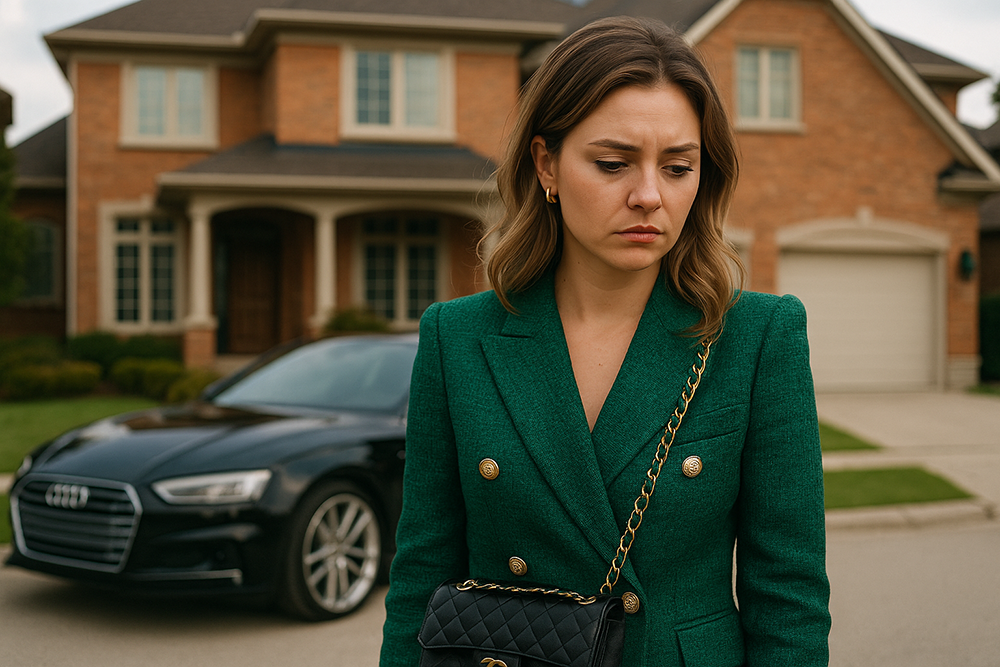
Behind the Smile: A Katy Therapist Lifts the Mask on Mental Health and Hidden Struggles
In the polished neighborhoods of Katy—where manicured lawns, top-ranked schools, and packed schedules paint a picture of suburban success—there is a quieter story unfolding behind closed doors. For Elizabeth Westbrook, LMSW, a therapist with a passion for those burdened by shame, religious wounds, or invisible trauma, this story is all too familiar.
With a background in social work from the University of Houston and specialized training in trauma-focused Accelerated Resolution Therapy (ART), Westbrook is on the frontlines of Katy’s emotional battlefield. From busy professionals burning out under perfectionism to families quietly unraveling beneath the pressure of performance, she’s heard it all—and she wants others to know they’re not alone.
The High Cost of “Having It All”
Westbrook sees a trend that might surprise outsiders: emotional pain wrapped in prosperity. “Hustle culture is killing us. It’s making us insecure,” she explains. “It’s putting us in debt because we have to pay $$$ for our kids' competitive athletics or ongoing academic support, or even the type of car they drive into the parking lot of their school when they get their license.”
This observation aligns with a national trend. According to the American Psychological Association's 2023 Stress in America™ survey, nearly 60% of U.S. adults report feeling emotionally exhausted, with financial strain, parenting stress, and achievement pressure cited as major contributors. In communities like Katy, where status symbols can include academic accolades or sports trophies, the drive to "keep up" can mask deeper distress.
In Katy, striving for the “best” isn’t just encouraged—it’s expected. But the pressure to maintain appearances can be suffocating. “We’re living in a world where we have constant access to everyone’s success, and it’s crushing our confidence,” Westbrook says.
Mobile Sidebar Ad
Behind Perfect Pictures and Brunch Conversations
According to Westbrook, social comparison—especially on platforms like Instagram—is a hidden driver of pain for many Katy residents. She doesn’t mince words: “If we aren’t first rooted in confidence in what we have and what we offer, we’ll reject others around us before knowing them truly, in an effort to make ourselves feel better.”
This phenomenon is widespread. A 2022 Pew Research Center report found that 71% of U.S. adults who use social media say they feel pressure to portray their lives in a positive light online, even when that portrayal doesn’t reflect reality. This disconnect can deepen feelings of inadequacy and isolation.
Westbrook encourages clients to shift their focus from digital illusions to real-life connections. “You will never find me in anyone’s Stories. I couldn’t care less. I surround myself with people that I make eye contact with and build genuine connections with,” she adds.
Who’s Safe to Talk To?
Mental health is still a delicate subject in many homes and communities, even in a city as outwardly progressive as Katy. Westbrook acknowledges this reality: “It can be risky being the one to share openly first and test the waters of those who you want to be vulnerable with. Not everyone is a safe person to share your deepest struggles with.”
This silence is not unique to Katy. The National Alliance on Mental Illness (NAMI) reports that only 47% of adults with mental health conditions in Texas receive any form of treatment, in part due to stigma and fear of judgment. Normalizing mental health conversations, Westbrook says, begins with trust and intention.
She advises people to evaluate the integrity of those around them and remember that vulnerability is a strength, not a liability. Holding space for someone else’s truth—or offering your own—requires trust, care, and a willingness to challenge the stigma.
 Elizabeth Westbrook, LMSW, therapist and trauma-informed practitioner, is dedicated to
Elizabeth Westbrook, LMSW, therapist and trauma-informed practitioner, is dedicated to When “Put Together” Means Falling Apart
Many who appear cheerful and composed are quietly unraveling. “If their default is always happy and put together, that may be your first clue…or that they don’t feel comfortable sharing with you in particular,” Westbrook warns.
Subtle signs—like distancing from social plans, avoiding group texts, or a sudden withdrawal—are often cries for help. According to Mental Health America, one in five adults experience mental illness each year, yet many go undiagnosed because their pain doesn't present in obvious ways. But rather than confronting them with assumptions, Westbrook urges kindness and curiosity. “Something doesn’t always have to be wrong,” she says. “Conversely, isolation… may be an indicator something’s off.”
Being About It, Not Just Talking About It
Westbrook’s advocacy doesn’t stop at the therapy office door. In honor of May’s Mental Health Awareness Month, she authored the Proclamation for Reclaiming Mental Wellness for All in Fulshear—an official recognition of the need for accessible, compassionate care. “Celebrated with some of the most compassionate, authentic, no-nonsense providers I know,” she shared in a recent announcement. “You can talk about mental wellness or be about it…. thankfully The Mental Wellness Collective does both.”
It’s yet another example of how Westbrook and her team are working to create tangible change in West Houston communities—one conversation, one connection, and one proclamation at a time.
A City Full of Helpers—If You Know Where to Look
Beyond her one-on-one therapy work at Here Comes the Sun Counseling, Westbrook collaborates with local organizations to make mental health care more accessible. “This city is full of incredible mental health professionals,” she affirms. “When I worked with my colleagues from The Mental Wellness Collective to build our 2025 West Houston Mental Wellness Resource Guide, we had readers like you in mind.”
By demystifying therapy and offering community-based solutions, she hopes to help residents break through fear and find healing. Even small steps, she says, can be transformative.
Mobile Sidebar Ad
A Message for the Silent Struggler
For those suffering silently, Westbrook offers this heartfelt reassurance: “The things you’re experiencing aren’t making you terminally unique… Letting someone in, whether it’s a colleague, church member, neighbor, or someone you met in a playgroup, can help loosen the grip the lie has on you that you have to smile pretty, be the most successful in the business networking group, or have the best curated social media.”
She believes that authenticity can be revolutionary—and connection, even in the smallest dose, can change a life.
Need Support?
If you or someone you love is seeking mental health resources in Katy or West Houston, contact The Mental Wellness Collective at connect@the-mwc.org for help finding the right provider.
 Tiffany Krenek has been on the My Neighborhood News team since August 2021. She is passionate about curating and sharing content that enriches the lives of our readers in a personal, meaningful way. A loving mother and wife, Tiffany and her family live in the West Houston/Cypress region.
Tiffany Krenek has been on the My Neighborhood News team since August 2021. She is passionate about curating and sharing content that enriches the lives of our readers in a personal, meaningful way. A loving mother and wife, Tiffany and her family live in the West Houston/Cypress region.







